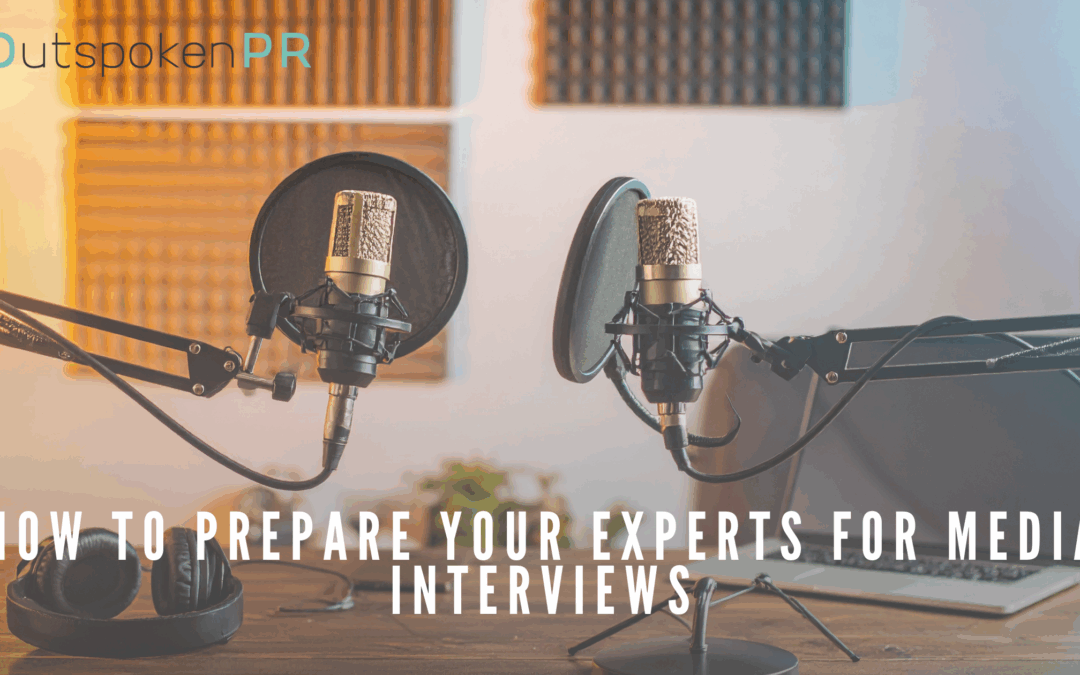How to prepare your experts for media interviews
Media interviews are golden opportunities for brands. They can drive visibility, build trust, and position your organisation as a thought leader in your industry. However, a great media opportunity is only as effective as the person representing your brand. A knowledgeable expert is a start, but a well-prepared, media-savvy expert? That’s where the real impact happens.
Whether it’s a video interview, a print interview, or a podcast feature, your experts need to be more than smart, they need to be strategic, confident, and clear. In this blog, we’ll share a few pointers on how to get your experts media-ready, from crafting clear messages to handling tough questions with grace.
Preparation is non-negotiable
It’s a common misconception that being an expert is enough. In reality, the media is a completely different playing field.
Your experts might know their subject inside out, but interviews aren’t lectures. They’re about making that knowledge accessible, relatable, and engaging for a wider audience and preparation is what turns deep insight into meaningful soundbites and headlines.
Without it, you risk:
- Rambling answers that get edited out
- Jargon-filled statements that confuse rather than clarify
- Missed opportunities to promote your key messages
- Being misquoted, or saying something off-brand
Media interviews are high-reward, but they come with risks. A few hours of preparation can protect your reputation and ensure your message lands exactly how you want it to.
Step 1: clarify the context and objectives
Before your expert even agrees to an interview, take a moment to go through what the interview will cover and what your objectives are.
- What is the story angle or focus of the interview?
- Who is the audience (industry peers, general public, policymakers)?
- What platform or publication is it, and what’s its tone or reputation?
- Is the opportunity proactive (e.g. launching a whitepaper or report) or reactive (e.g. commenting on a crisis or news story)?
This will shape how your expert approaches the conversation.
Step 2: identify your core messages
This is crucial. Every interview should be underpinned by 2–3 key messages your expert wants to deliver. These should align with your brand’s positioning and communication goals.
A good key message is:
- Clear and jargon-free
- Relevant to the interview topic
- Supported by examples, evidence or anecdotes
- Memorable
It’s not about dumbing things down, it’s about making them understandable.
Step 3: invest in media training
This is where theory becomes practice. Media training is not about learning a script. It’s about:
- Learning how journalists think and work
- Practising real-life scenarios
- Managing nerves and body language
Media training should be tailored to the individual – whether it’s a nervous first-timer or a confident C-suite executive, practical coaching that builds skills and confidence, not just theory is the way to go.
Step 4: hone the delivery
Tone, pace, posture, and expression all influence how your expert is perceived, and even the most insightful point delivered poorly can fall completely flat.
Encourage:
- Energy and enthusiasm – show passion for the topic
- Clarity and brevity – especially for broadcast, answers should be succinct
- A conversational tone – this isn’t a speech, it’s a dialogue
- Open body language – arms uncrossed, eyes focused, posture upright
Step 5: schedule a debrief
After the interview, take time to reflect:
- Did the key messages come through?
- Were there any unexpected questions?
- How was the expert’s tone, pace, and confidence?
- What did the journalist focus on in the final piece?
This feedback loop is essential for improvement. Even seasoned spokespeople learn something new every time, and regular practice only builds strength.
Bonus tip: consult an expert
Preparing your internal experts for media exposure isn’t always something you can manage in-house, especially with tight deadlines, high stakes, or complex subject matter.
That’s where a communications expert adds real value by identifying and train the right spokespeople, crafting compelling messages and media angles, running media simulations and interview prep and supporting you during live coverage or follow-up.
While your experts already have the knowledge, you need to make sure they also have the tools, training and confidence to communicate that knowledge effectively. With the right preparation, media appearances stop being daunting and start becoming a strategic advantage.
So, whether you’re preparing a CEO for an industry-specific interview or an engineer for a podcast, remember: media performance isn’t just about what you know, it’s about how well you can share it.
Ready to make your spokespeople media-ready?
OutspokenPR offers bespoke media training and strategic interview support tailored to your brand, your message, and your audience. Let’s talk: team@outspokenpr.com

